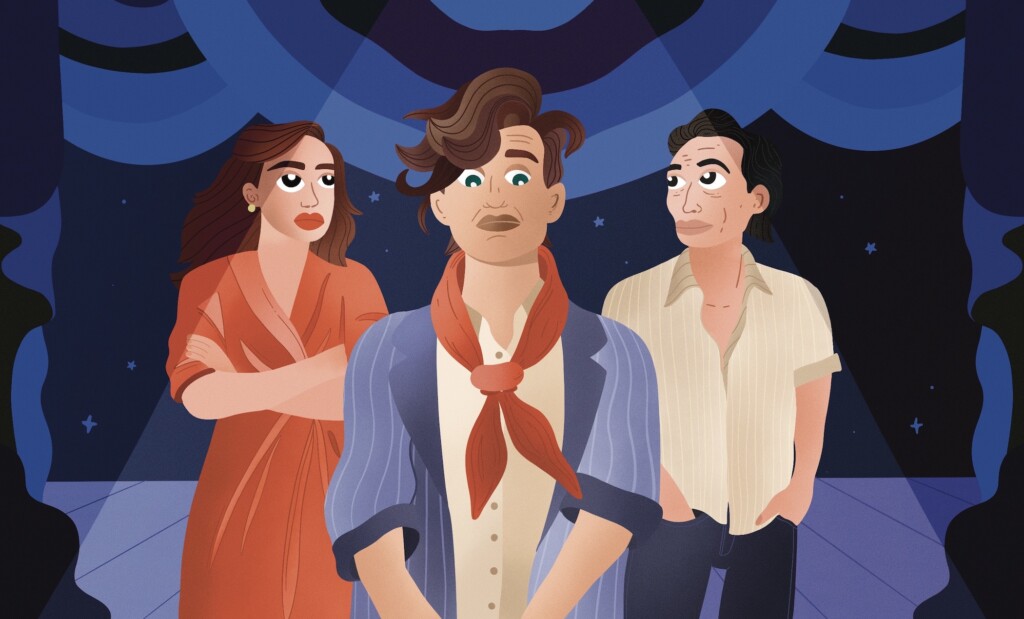For as long as she can remember, people have asked Jamie Bernstein what it was like to grow up with her dad. So much so that she — the daughter of legendary conductor Leonard Bernstein, who penned West Side Story with Stephen Sondheim — kept a standard reply ready on command: “Well, it wasn’t boring!” In 2018, the actress, director, and author finally gave the world the response it was due in her memoir, Famous Father Girl: A Memoir of Growing Up Bernstein.
Being the child of famous parents has its ups and downs. While you’re always in the shadow of someone adored by the public and their peers, you also get to be around all their famous friends, and maybe — most likely — gain career connections thanks to their celebrity. Gen Z donned it the “nepo baby” effect, and this past year New York magazine dedicated an entire issue to its millennial boom in Hollywood, including the likes of Maya Hawke (daughter of Uma Thurman and Ethan Hawke), Jack Quaid (son of Dennis Quaid and Meg Ryan), Zoë Kravitz (daughter of Lisa Bonet and Lenny Kravitz), and more. Creativity has literally flowed through these second-generation genes, and now several nepo babies are paying homage to their bold-named family legacies through creative outlets of their own, with documentaries, memoirs, and even a literary salon.
Take Beckett Rosset, the 53-year-old son of Barney Rosset, who helmed Grove Press and published then-controversial, now-iconic books like The Autobiography of Malcolm X and Henry Miller’s Tropic of Cancer. (The late Rosset was the first to publish Samuel Beckett in the U.S., and was so taken with the author that he named his son after him.) Beckett mingled with John Lennon and Norman Mailer, but the elder Rosset’s absentee parenting took a toll on his son, who battled addiction while supporting himself with random jobs. Last year, New York’s young creative class filled Beckett’s West Village town house for salon-like literary happenings that recalled the smoke-filled intellectualism that his father used to abandon him to chase.
Alexandra Auder is looking backward, too. The Philadelphia-based creative was nearly born in the lobby of New York’s Chelsea Hotel in 1971 to Michel Auder, the experimental French filmmaker, and actress and Warhol superstar, Viva. Joan Didion once referred to their lives at the infamous bohemian enclave as “an extraordinary verbal videotape of a life in the process of being lived.” But the youngest Auder remembers her chaotic childhood a bit differently. “I think of it as my story rather than my mother’s — and it took me 30 years to refine and revise it, find my voice, and gain a hopefully mature perspective on my childhood,” admits Auder, who first began Don’t Call Me Home: A Memoir as part of her thesis project at Bard College. “I hated when people assumed [my mother] was a drug addict because they associated her with Warhol’s Factory scene,” she says. “It enraged me, and I thought they were complete idiots.”
The pandemic turned fortuitous for Leah Hennessey. Martin Scorsese was working on a Showtime documentary dedicated to her stepfather, New York Dolls front man David Johansen, when lockdown halted the world and production closed. The director turned to the then 31-year-old lead singer of the Band Hennessey — whose music prompted fashion designer Hedi Slimane to have her produce the soundtrack for the Winter 2022 Celine show — to conduct interviews for use in Personality Crisis: One Night Only. The conversations between Johansen and Hennessey were so honest and intimate that the pair earned starring roles in the film, which was just released this spring.
Intentionally or not, the imprints parents leave on their children are as irrecoverable as they are eternal. These recent works might be the product of legacy offspring but, more broadly, they prove our collective need for reflection on our childhoods by expressing the realizations that come with age and experience. As the world becomes more open about these traumas, we can expect to see more work about it. As for advice for other children with famous parents? Bernstein says, “not to expect to get it all figured out right away, but rather to be patient, and live their own lives to the fullest in the meantime.” Auder is more a matter of fact: “Fend for yourselves and Godspeed.”


